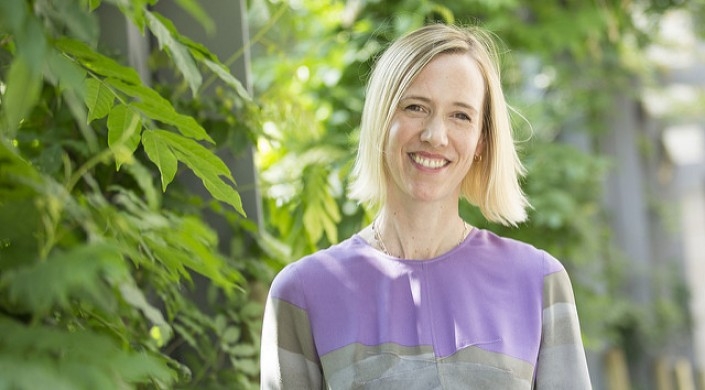News
Elsie Sunderland, the Thomas D. Cabot Associate Professor of Environmental Science and Engineering, was recently approved for for promotion to the role of full professor with tenure at the Harvard John A. Paulson School of Engineering and Applied Sciences (SEAS).
Harvard President Drew Faust has approved Elsie Sunderland for promotion to the role of full professor with tenure at the Harvard John A. Paulson School of Engineering and Applied Sciences (SEAS).
Sunderland, the Thomas D. Cabot Associate Professor of Environmental Science and Engineering, studies how chemicals released by human activity interact with natural ecosystems and affect living systems. Sunderland’s research quantitatively analyzes the entire exposure pathway for pollutants to identify key processes that influence their accumulation in the animal and plant life. Her research combines environmental measurements with models to project chemical levels over space and time, allowing for a better understanding of how global change (both chemical releases and climate change) will affect human and ecological health risks associated with environmental toxicants.
Sunderland’s research has a broad impact on communities and policy makers. Her work has helped catalyze the development of the first global treaty aimed at reducing anthropogenic mercury releases; a Senate-led initiative to study the health effects associated with PFASs in drinking water; and support for indigenous communities in Canada addressing adverse impacts of hydroelectric reservoirs on their health.
Sunderland has taught a number of environmental science and engineering courses at SEAS, including: Introduction to Environmental Science and Engineering (ES-06), Seminar on Global Pollution Issues (ES-169), Applied Environmental Toxicology (ES-161), and Mitigating Toxicity Through Material Design (ES-298r).
Since her appointment as a faculty member at Harvard in 2010, she has mentored a total of 39 young scientists: 10 postdoctoral fellows, eight doctoral students in SEAS/EPS (4) and HSPH (4), and 10 masters students in HSPH and the Extension School.
Sunderland earned a B.Sc. in Environmental Science from McGill University and a Ph.D. in Environmental Toxicology from Simon Fraser University. Prior to joining the faculty at Harvard, she spent five years working with the U.S. EPA in Washington, DC where she worked on the first rule to regulate hazardous air pollutant releases from coal-fired utilities and best-practices for model use in environmental decision making.
Topics: Academics
Cutting-edge science delivered direct to your inbox.
Join the Harvard SEAS mailing list.
Press Contact
Leah Burrows | 617-496-1351 | lburrows@seas.harvard.edu



